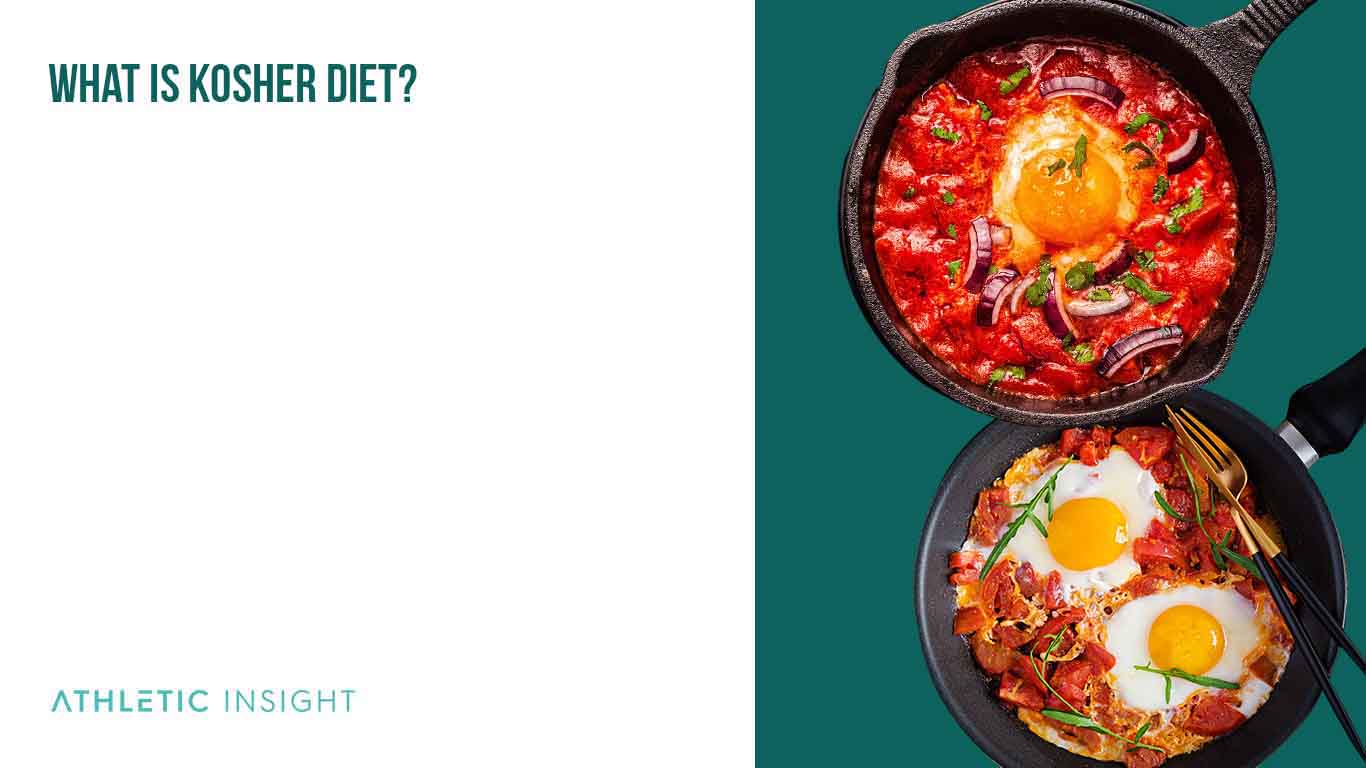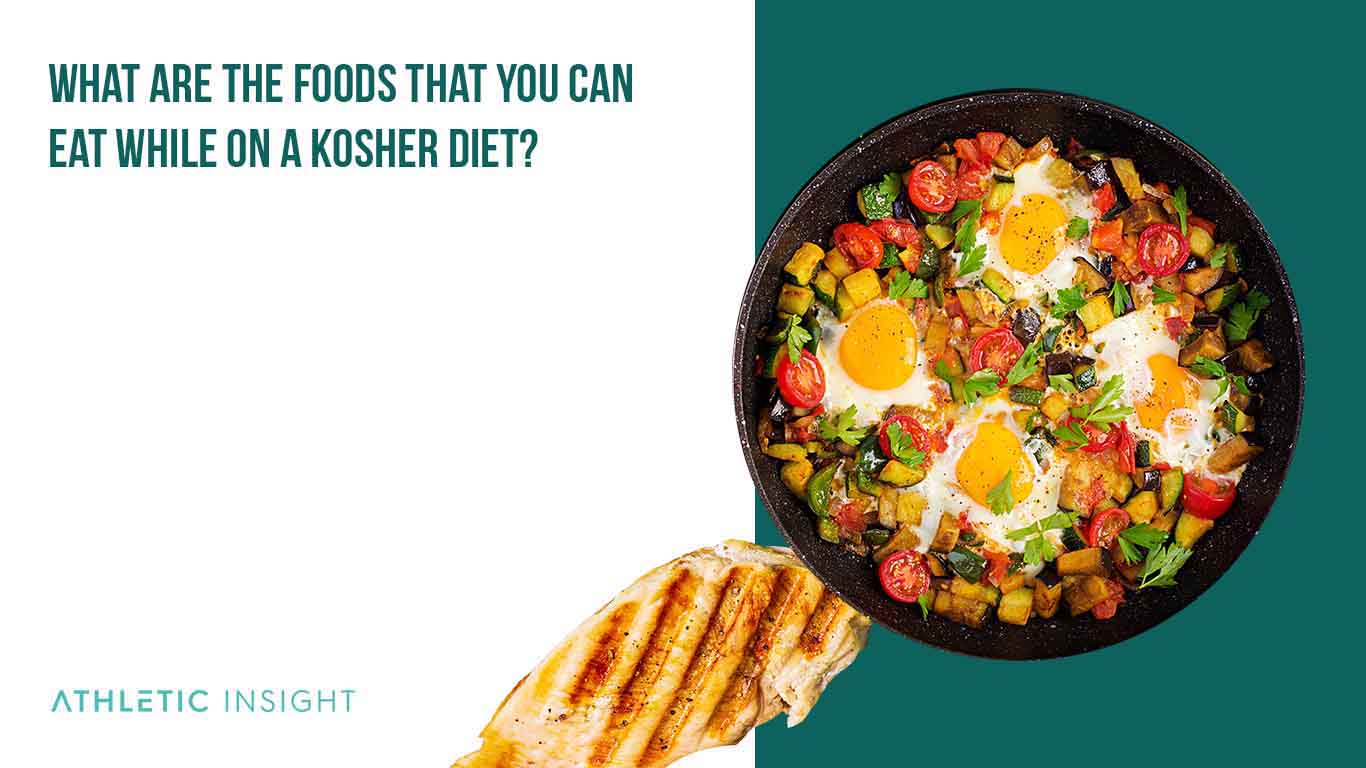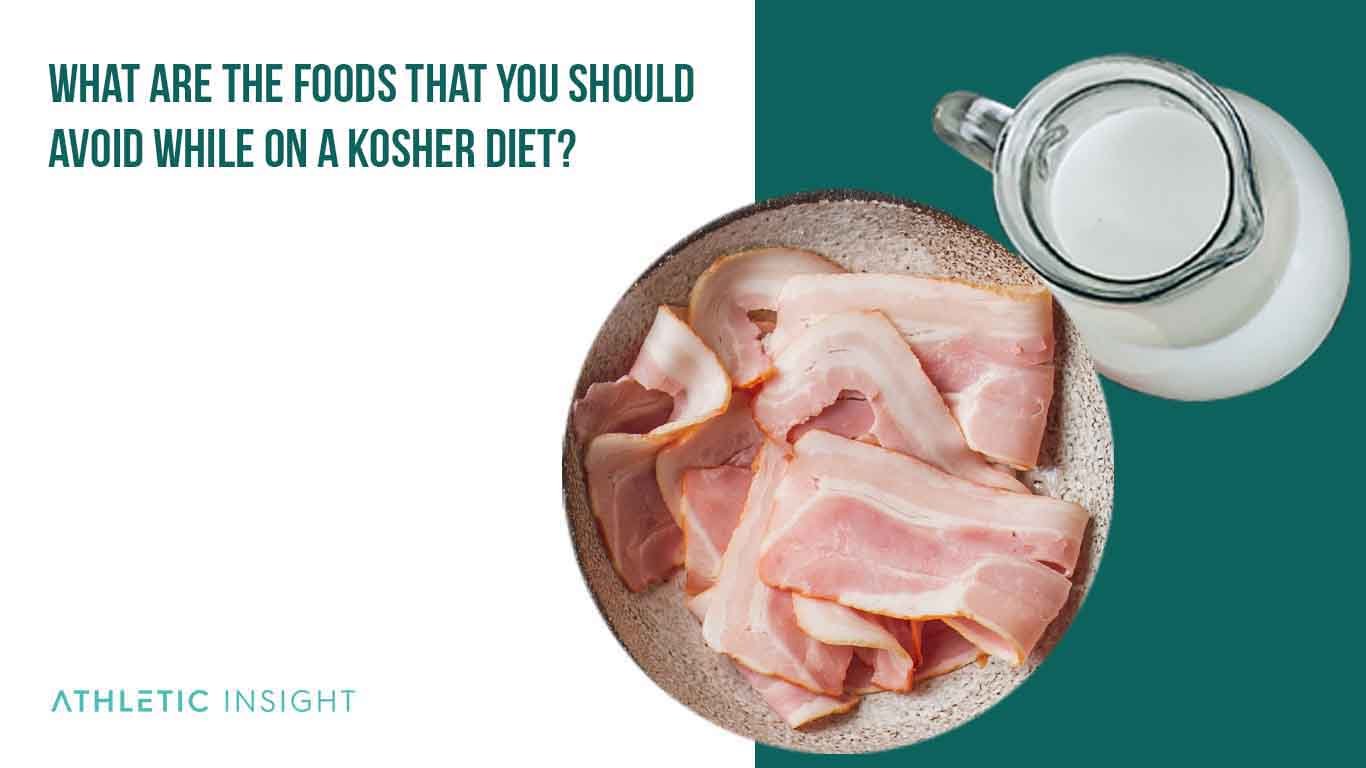A kosher diet is a Jewish dietary method of preparing, processing, and consuming only certain meats and dairy products that follow the Judaism dietary restrictions and laws. The Kosher diet is important for many Jewish people since it connects them to their faith and community.
The Kosher diet rules come straight from the Torah and are called “kashrut.” The word “kosher” means proper or fit in Hebrew regarding Jewish dietary law. The kosher diet details exactly the type of foods that you’re allowed to eat as well as how these foods need to get processed and prepared.

Reduced Allergens
Reduced Cholesterol
Improved Digestion
The benefits of the kosher diet program include the reduction of allergens, a better-working digestive system, and reduced cholesterol levels. A potential risk of the Kosher diet is higher blood pressure..
The three main types of kosher diet foods include meat, dairy, and pareve. Pareve consists of food that doesn’t have dairy or meat, such as fish, eggs, and vegetables. While there are other foods you can consume that are Kosher-friendly, these are the main foods that your meals revolve around.
What Is a Kosher Diet?
The kosher diet goes far beyond a kosher diet food list. It consists of rules based on history and religion as well as a strong focus on the way to inspect, prepare, and process the food.

The Orthodox Judaism kosher diet is strict and becomes stricter during Passover. Jewish people who follow the diet cannot eat grains that have risen or fermented during that holiday. The common types of foods that Jewish people cannot eat or drink on Passover include pasta, bread, beer, and liquor. They can, however, consume kosher matzah.
Furthermore, soft drinks like diet coke are often kosher. Therefore, it’s safe to drink Pepsi or any type of soft drink whenever you’re following the kosher diet plan.
How Does a Kosher Diet Work?
The kosher diet works by eliminating foods with hazardous hormones and chemicals from reaching your body. These hormones are usually found in meat products. Furthermore, the diet ensures you will never consume seafood with various toxic pollutants.
The kosher diet guidelines also help people with digestive issues like Crohn’s disease and IBS, as separating meat and dairy is gentler on the digestive system as well as avoiding pork.
What Are the Foods That You Can Eat While on a Kosher Diet?
The foods that you can eat while on a kosher diet meal plan includes most fruits, vegetables, grains, cereals, legumes, nuts, seeds, healthy fats, and proteins. The main meats you can eat on the kosher diet include meats from cows, sheep, goats, turkey, chicken, duck, and geese. If consuming dairy products you need to eat kosher yogurt and cheese.

Furthermore, the heavenly kosher diet allows nuts, seeds, and oils as they are generally kosher in their natural form. However, if these food products get processed, they need to have a kosher certification which ensures that the food wasn’t in contact with non-kosher items.
The kosher diet food list also includes legumes like peas, beans, and lentils along with kosher meats, fish with fins, and matzah. The Jewish kosher diet also includes grains and cereals as long as the food products are unprocessed.
What Are the Foods That You Should Avoid While on a Kosher Diet?
When on the kosher diet, you are allowed to eat eggs from kosher fowl or fish. Yet, the eggs need to undergo an inspection. Dairy products like butter, milk, yogurt, or cheese need to come from kosher animals, and all the tools used to produce the food need to be kosher compliant or certified.

The following list includes the foods that you should avoid.
- Pigs, rabbits, camels, and carnivore animals
- Fish without removable scales
- Birds of prey
- Shellfish
- Insects
- Blood
The main reason why you cannot eat certain foods is due to the laws in the Torah. Also, Ashkenazi Jews have a higher risk of digestive issues, which these foods can exacerbate.
What Are the Best Recipes for the Kosher Diet?
The best five recipes for a kosher diet are listed below. While there are many other recipes you can find online, these have the highest ratings.
- Barbecue Brisket: The Barbecue Brisket requires an onion, five cloves of garlic, olive oil, sea salt, black pepper, and half a cup of beer along with the brisket.
- Coffee Peanut Butter Sheet Pan Dessert: The Coffee Peanut Butter Sheet Pan Dessert recipe consists of vanilla ice cream, boiling water with instant coffee, margarine, chocolate sandwich cookies for the crust, and a chocolate peanut butter topping.
- Chunky Vegetable Soup: The Chunky Vegetable Soup recipe includes zucchini, squash, an onion, carrots, and chickpeas along with other tasty veggies.
- Sesame Chicken Bites: Sesame Chicken Bites also meet kosher guidelines and consist of one egg, bread crumbs, chicken cutlets, oil, sesame seeds, and a combination of duck sauce with soy sauce.
- One-Pan Minute Steak with Noodles: You can also serve up the One-Pan Minute Steak with Noodles recipe using ingredients like broccoli florets, ramen noodles, and steak with onions.
What Is a Sample Kosher Diet Plan?
A sample kosher diet plan for one standard week can be seen below.

Reduced Allergens
Reduced Cholesterol
Improved Digestion
Breakfast
- Cereal with milk and natural fruit juice
- Oatmeal with coffee and an apple
- Oat pancakes with coffee and a banana
- Scrambled eggs from chicken with turkey bacon and natural fruit juice
- An egg sandwich with tomatoes and lettuce and a cup of coffee
- Crepes with blueberries and raspberries
- Cereal with nuts, seeds, and berries
Lunch
- Sandwich with chicken and a side salad
- A kale Waldorf salad
- Spaghetti with a beef-based sauce
- A beef sandwich with a side salad
- A turkey sandwich and an apple
- A vegetable pizza
- A chunky vegetable soup
Dinner
- Ratatouille sheet pan chicken recipe
- Baked potatoes, stir-fried veggies, and cheesy monkey bread
- Chicken breast, white rice, and vegetables
- Blackened tilapia with rice and vegetables
- Shawarma
- Grilled salmon and vegetables with fruit for dessert
- Chicken or beef kebabs with oven-roasted potatoes
How To Do the Kosher Diet
You can follow the kosher diet by adhering to religious rules. That means you can eat all fruits, vegetables, and grains except for grape juice and wine unless they’re kosher-certified. Certain meats are kosher while others are not. You cannot eat shellfish, pork, or rabbit.
You’ll need to ensure that the meat you consume is prepared based on kosher guidelines. For instance, you cannot mix dairy and meat. The meat will also need to get slaughtered and prepared based on kosher law. Jewish people following the diet and sticking with their religion will need to continue the kosher diet for a lifetime.
You will need to follow these best practices, but you do not need to restrict the number of calories you consume. Many Jewish people follow the kosher diet for their entire lives.
Kosher foods will not necessarily provide you with all the nutrition you need nor low-calorie foods that help you lose weight. The diet does not require you to consume a specific number of calories.
Who Should Do the Kosher Diet?
Generally, Jewish people who adhere to the rules of the Torah should follow the kosher diet. That may include people born into the Jewish faith as well as people who converted to the religion. However, people of other religions can also take part in the kosher diet.
For instance, non-Jewish individuals who have digestive issues may benefit from the kosher diet.The diet can help alleviate digestive conditions.
What Are the Health Benefits of the Kosher Diet?
The health benefits of the kosher diet are a lack of allergens, a lack of colorants, healthier lifestyle, lower cholesterol, and better digestive system.
- A lack of allergens, especially dairy products when imprinted with “pareve”
- A lack of colorants like carmine
- An overall healthier lifestyle
- Lower cholesterol levels
- Better digestive system workings
In addition, kosher salt has a lower amount of sodium content. Yet, the kosher diet does not necessarily help you lose weight.
What Are the Health Risks of the Kosher Diet?
The health risks of the kosher diet include higher blood pressure, weight gain, and eating disorders.
- Potential for higher blood pressure and cardiovascular issues
- Potential for weight gain due to trans fats in food products
- Possible triggers for eating disorders
Cardiovascular issues and high blood pressure may occur due to the extra salt added to kosher meats. The many rules in a strict kosher diet may negatively impact those who are at risk of eating disorders, as these individuals often follow specific eating rituals.
What Are the Facts About the Kosher Diet?
- The kosher diet in the first week should include drinking lots of water
- The average family of four spends anywhere from $1,000 to $1,250 on kosher food each month
- The kosher diet uses many of the same foods as the Atkins diet, such as beef, poultry, eggs, oils, and some vegetables
- The kosher diet is not meant for weight loss, but it is low in saturated fat and cholesterol
- Kosher diet rules first appeared in the Torah around 1275 BC
Is the Kosher Diet Considered a Healthy Diet?
The kosher diet can be a healthy diet or an unhealthy option depending on the type of foods you consume, including the number of trans fats and sugar you add to your meals.
Is Kosher Food Easy to Find?
Yes, it is easy to find kosher-certified food in the United States. Also, the diet includes most fruits, vegetables, and grains that are easy to find.
Are Kosher Foods Only for Jewish People?
No, Kosher foods are not only for Jewish people. People of all faiths or those who are atheists can follow a kosher diet. However, it is usually people of Jewish faith who stick to a kosher diet.
What Are the Kosher Food Categories?
The main food categories of the kosher diet include meat, dairy and pareeve.
- Meat
- Dairy
- Pareve (eggs, fish, fruits, vegetables, etc.)

Reduced Allergens
Reduced Cholesterol
Improved Digestion



